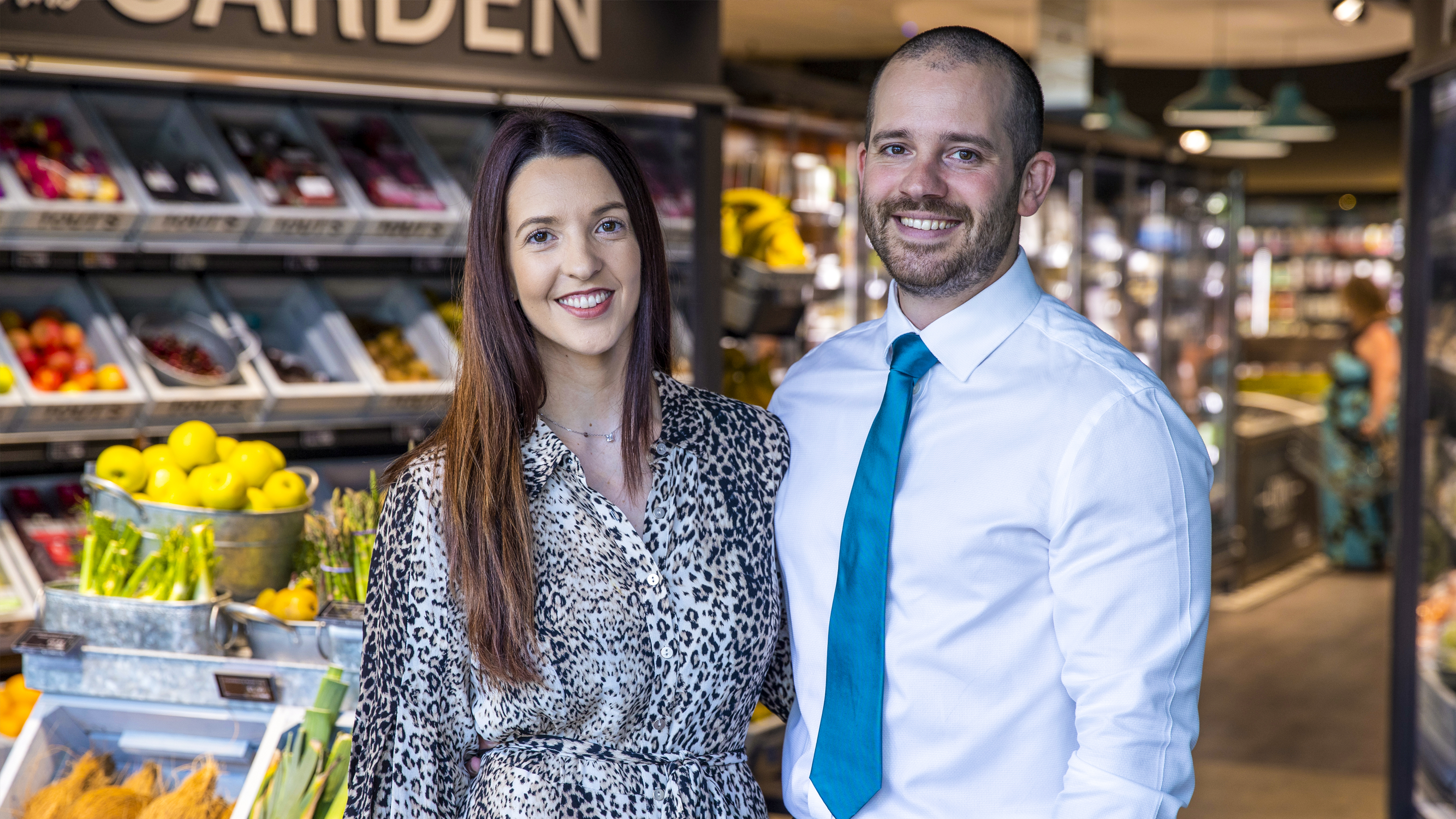Instead, faced with pressure on household budgets not experienced for decades, convenience outlets are flexing their range, promotional programmes, and even store layouts to convey a value message and retain fickle customers.
With food inflation still at its highest for decades, many shoppers have been buying more own-label and switching to discounters, says market analyst Kantar. It reported recently that Aldi was the fastest-growing retailer for the fourth month in a row, with sales up 21.2% on 2022 in the 12 weeks to 6 August. The budget chain now enjoys a 10.2% market share, while rival Lidl has 7.7%.
Consumer backlash
Meanwhile, the convenience sector is facing a backlash from customers grappling with higher grocery prices, according to Lumina Intelligence.
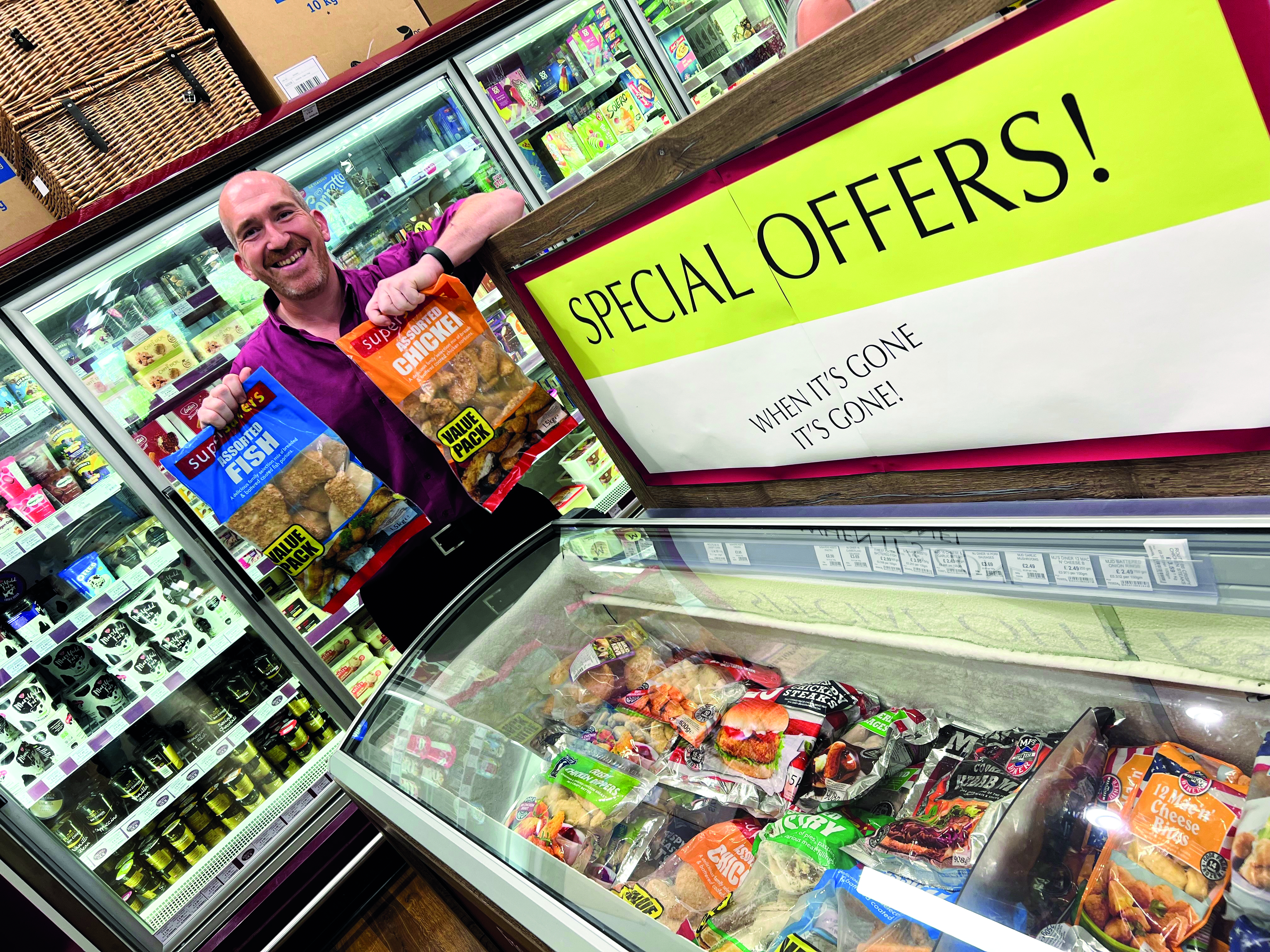
Adam Vincent
Its Convenience Tracking Programme shows the percentage of consumers who have had “a convenience occasion” in the past seven days falling from 60% in the four weeks to 12 December 2021 to 56% in the four weeks to 28 May 2023.
“Older, less-affluent shoppers have driven declines in convenience penetration due to higher grocery prices amid tightened incomes,” says Katherine Prowse, senior insight manager at Lumina Intelligence.
“Symbols and independents have lost the most share due to typically higher prices than managed convenience and shoppers moving towards discounters. Managed convenience [multiple-branded small stores] has also been able to leverage footprint to focus on low prices and promotion.”
One welcome trend for the industry, and the economy as a whole, has been that, after high double-digit increases over last winter, grocery price inflation has been slowing – Kantar says it fell by 2.2 percentage points to 12.7% in the four weeks to 6 August, the second sharpest monthly fall since it started this monitoring in 2008.
And prices of staples have been coming down – the cost of four pints of milk was £1.50 in July, compared with £1.69 in March, according to Kantar.
Value perception
But prices are still considerably up year on year and independent convenience stores need to take action to be seen as offering value, says consultant John Heagney, founder partner at the C-Store Collective.

John Heagney
“It is absolutely vital. Shoppers have a plethora of stores to choose from – convenience, supermarkets, discounters and even online companies such as Ocado are price-matching Tesco.
“It is a battleground. Shoppers need to see they are getting value for money where they shop and the days of insult pricing in the convenience sector are long gone,” he says.
Purse strings
Certainly, the symbols are confronting the challenge – rising prices for consumers come amid soaring energy and other operating costs for their member retailers.
Nisa, for example, has just announced a series of 15 “amazing value” one-week-only deals running until the end of the year on a broad range of categories including alcohol and with Nescafé Gold Blend 95g reduced, for example, from £3.65 to £2.75.
“We know that increasing worries around the rising cost of living mean that for many shoppers purse strings will be even tighter than usual [this Christmas], so our one-week deals will cater for those looking to stock up on a budget,” says Laura O’Hearne, Nisa’s trade and seasonal planning manager.
Budget ranges
Independent wholesale buying group Unitas is re-launching its own-brand range, which has been growing 29% this year and is now called Local Living with more than 150 products, according to the company.
And in response to inflation being “stubbornly high”, Morrisons is introducing up to 40 entry-level products into more than 500 Morrisons Daily stores, claiming to be the first UK convenience store operator to do so.
The budget Savers products, including key essentials such as eggs, ham, butter, washing-up liquid and toilet rolls, will be the same price as in the group’s supermarkets: a litre of UHT skimmed milk is 69p, for example. It has also cut the price of 18 high-volume products in Morrisons Daily stores such as milk, bread, and tomatoes.
“Speaking plainly, the reason convenience stores don’t stock entry-price-point products is because they make very little, if any, money and do not fit with the significantly higher cost structure of convenience stores,” says Morrisons chief executive David Potts.
“But customers – especially those living in areas without easy access to a supermarket – have told us how much they would appreciate it at this difficult time and so we are doing it.”
Heagney says a tight value range, if it delivers sufficient margin, can be tactically right, depending on location. “Price, or perceived price, is hugely important.
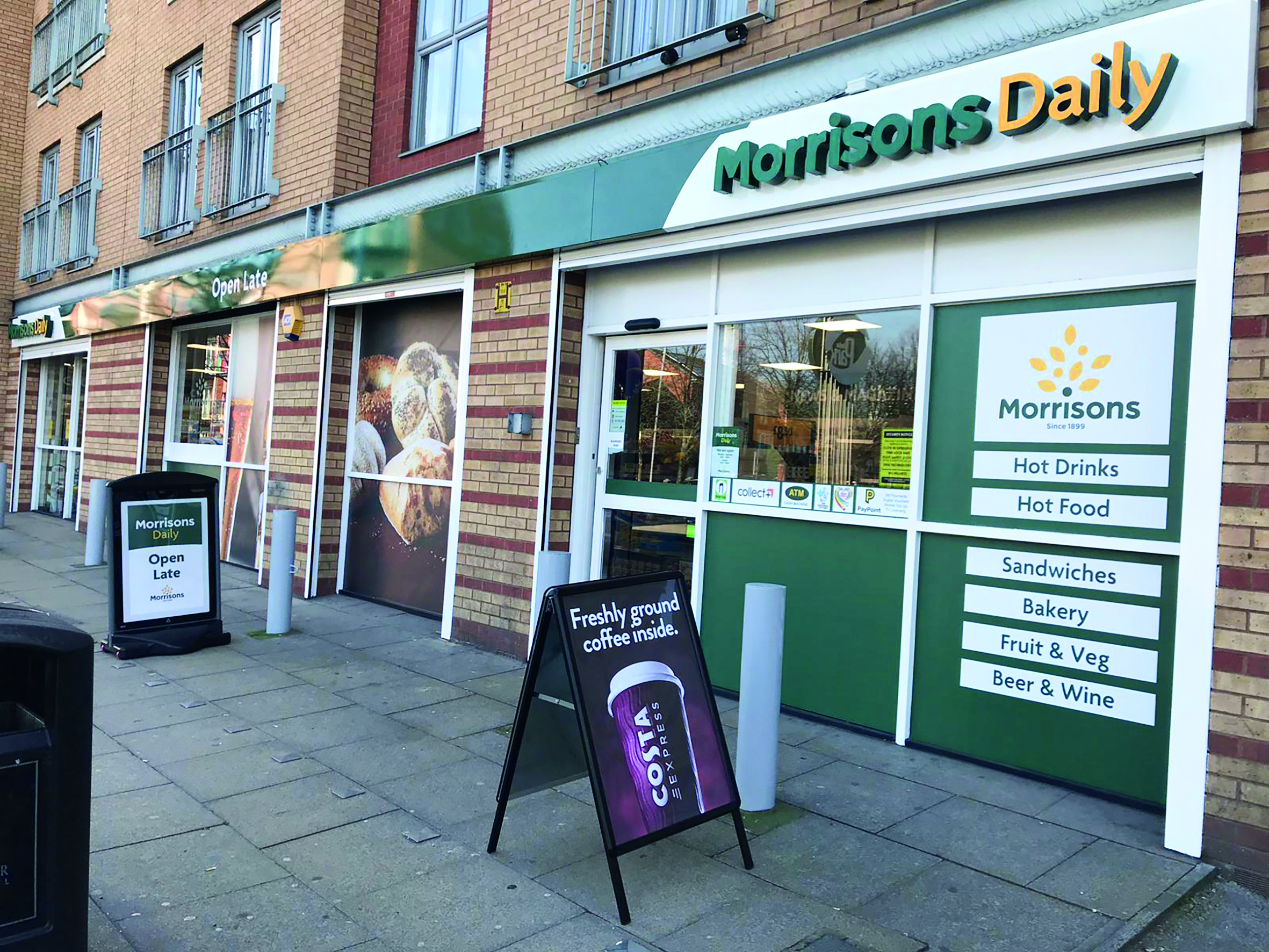
“A budget range in a leafy village with a high demographic is probably not needed, but if the customer base is generally from lower socio-demographic groupings, many of these shoppers need value products and it is vital that the retailer strives to provide them with what they need,” he says.
Perceived price
Retailer Alex Kapadia, who switched his 2,500sq ft store in the Whitehills district of Northampton to a Morrisons Daily last October, says that in the two weeks since introducing 25 Savers lines they have been performing particularly well, compared with the standard own-label range.
The mature cheddar Savers product, for instance, is the top seller in that category. He says that having access to a cheaper own-label range was a major factor in him moving to the fascia. He now stocks 20% more own-label product than when he was with his previous symbol group.
“With Morrisons Daily, stocking more own-label and better-value chilled food in particular has helped to make us more competitive,” says Kapadia, who has maintained turnover despite a Tesco Express opening within 500m of his store since the refit.
He believes this is a better strategy than relying on tactical price-cutting on his branded range. “There’s no profit in offering too many promotions. We try to focus on sensible pricing all the time,” he says.
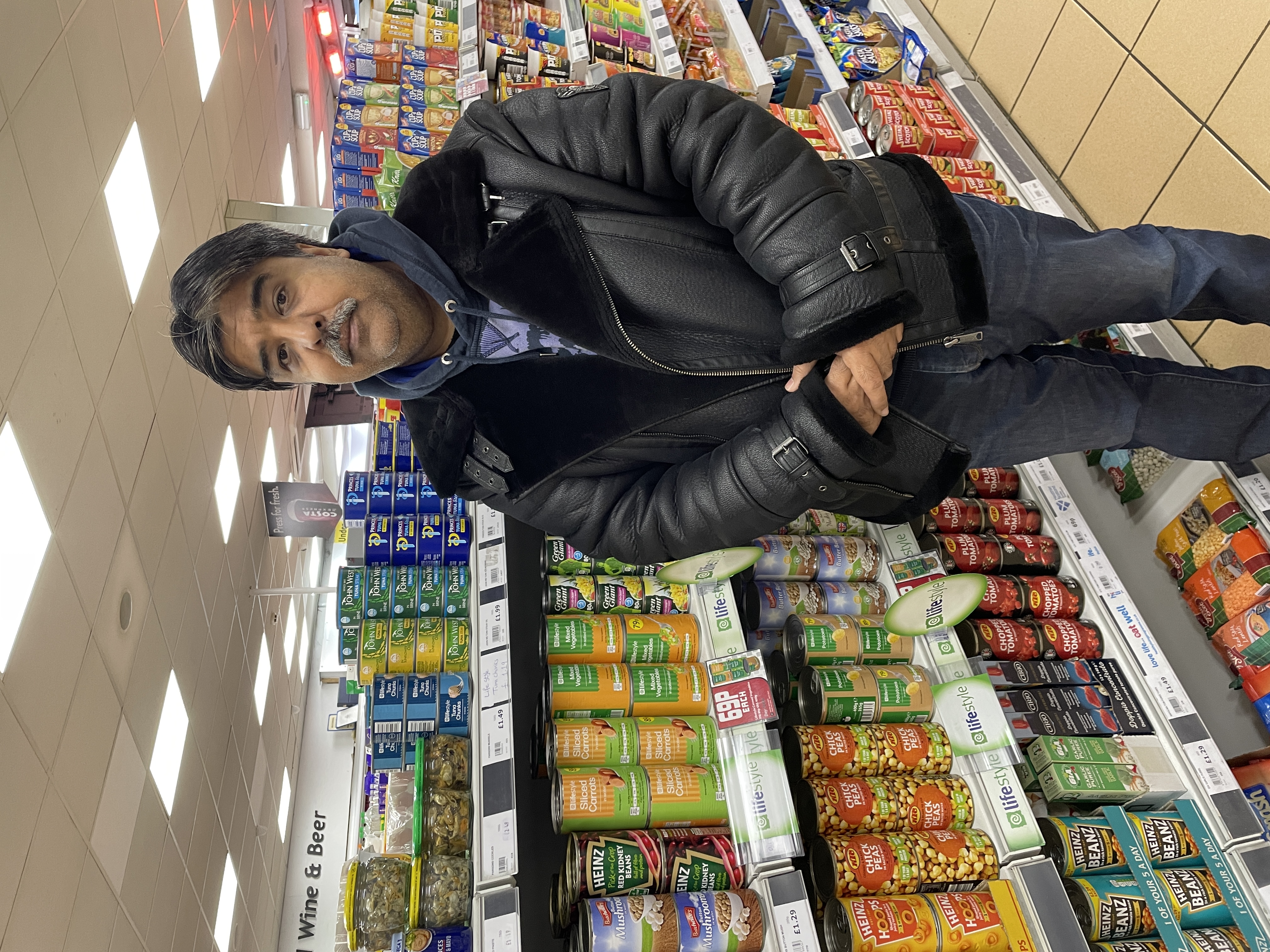
Asif Sharif
Known-value items
However, Day-Today retailer Asif Sherif, who is supplied by Unitas Wholesale member United Wholesale Scotland, says he has gained customer loyalty at his store in Silverburn, Glasgow, with deals on known-value items to compete with the supermarkets. The £6.99 price-marked packs of Lurpak, which he sells at £5.99, “fly off the shelf”.
Heagney says independents need to be careful not to over-promote, and to be selective with offers and range, developing high-profit areas such as vaping, food-to-go and slush machines to protect margins.
“This is the clever piece. With rising costs, all retailers are having to increase margins. Choosing strong promotions that are highly visible is a skill and retailers need to very carefully watch that they are selling profitably, avoiding tiny-margin SKUs that may be appealing to shoppers but don’t add in profit,” he says.
“Take time to select the best, profitable promotions and then promote them hard with bold promotion ends and strong, vibrant POS. The old saying ‘a bargain isn’t a bargain if the customer doesn’t know it’s a bargain’ springs to mind.”
Meaningful data
Margin management is also crucial, insists Heagney. “Retailers must track their sales and gross profit percentage every week to ensure they are heading in the right direction. This means EPoS systems must be fully functioning and retailers have all the data correct to produce meaningful data reports,” he says.
Nisa retailer Dike & Son has been intensifying this approach in chilled and frozen in recent months, driven by rising energy prices. “If a sauce has a margin of only 18%, we can’t afford to chill it now. We need to make an average of 27% overall on chilled,” says director Adam Vincent.
Also, to offer customers value it is considering giving loyalty cardholders 5p back in every pound spent in the six weeks of Christmas, instead of the usual 1p. Additionally, says Vincent, because the store buys fruit and vegetables from the market, it can pass on daily deals to customers when there is a glut of a particular type of produce.
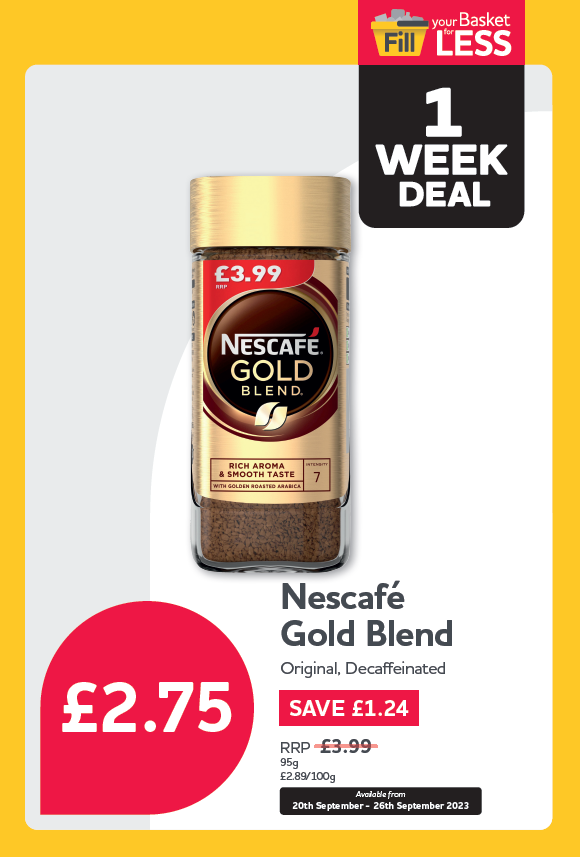
Clearance stock
The Stalbridge, Dorset retailer has also from early this year introduced three freezers of value, clearance stock from KP Frozen Foods (KPFF). The supermarket sells about £1,000 a week of the products, which are set at prices designed to fend off discounters.
For instance, a bag of 50 chicken nuggets is priced at £4.99 and a kilo bag of chicken kyivs at £4.49. Because it is clearance stock, different products are available each week, which can be off-putting for customers, admits Vincent, but he says that over time they have warmed to the concept.
With margins of about 30%, more retailers are getting on board, says KPFF, which reports 175 accounts signed up. The business, which repackages surplus and irregular food, hopes to be supplying 500 stores by the end of the year.
Ultimately, says Heagney, retailers could do worse than to take a trip to their local Aldi for tips on remaining relevant to a budget-conscious shopper.
“There is more to be learned from the discounters, who are still increasing market share and will continue to do so,” he says. “They keep it simple, stock a smaller, leaner range, shout price, operate their stores efficiently, and boost margins with clever tactical non-food ‘when it’s gone, it’s gone’ promotions that shoppers love.”
Striking the balance between premium lines and value
Zena Tout, Tout’s Cleeve, Bristol
Zena and Jon Tout
It is a difficult balance to strike for retailers who pride themselves on their stores’ foodie credentials to be seen as offering value as well. Tout’s, which opened its third forecourt shop in June 2022 with the feel of a farm shop, including specialist in-store butchery, off-licence and floristry sections, has been taking measures to cater for budget-conscious consumers at its outlet in Cleeve, near Bristol.Brand director Zena Tout, who manages the business with her husband Jon, is introducing a value grocery one-metre display of six shelves near the store entrance as well as a value fridge in the middle of the aisle at the back of the store, both displaying Tout’s value branding.
The ambient display will be updated regularly to maintain interest and will include some of the best in-store deals. The business also introduced its “Price Lock” campaign in March, discounting a rolling 200 everyday commodities every three months.
In addition, it runs a Black Friday 10% off beer, wines and ciders offer, and its loyalty card gives members 2p off a litre of fuel, 10% off fruit and veg, 25% off a car wash and 10% off Thatchers cider on a Friday.
However, Tout concedes that promoting value at the same time as exclusivity can be a fine balance. “I firmly believe that adjusting our product range to the ongoing cost-of-living crisis is imperative, as it is for all grocery retailers,” she says.
“However, this adaptation must be executed with a delicate touch to ensure our unique business propositions and distinctive features remain at the forefront, as this is what makes us special.”
 Talking Retail Grocery and product news for independent retailers
Talking Retail Grocery and product news for independent retailers

